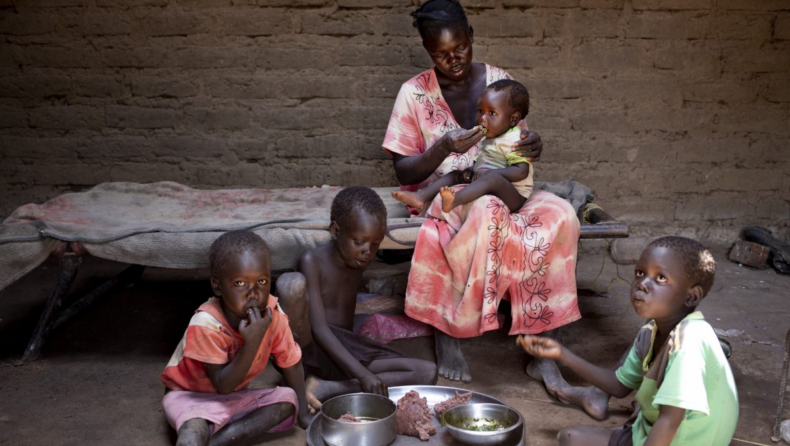Sudan is facing an economic crisis due to global inflation, internal conflict, and the impact of climate change. Nearly one-third of the population is threatened by the looming hunger crisis.
Highlights:
- Sudan’s economy sinks due to global inflation and climate change.
- Water and electricity outage continues.
- Lack of funding to meet the humanitarian needs.
Sudan has slipped into an economic sink post-coup in October. Living conditions have deteriorated after the suspension of billions of dollars in international funding. The country now faces a catastrophic hunger crisis due to the combined impact of climate change, the rise in food prices, and political turmoil.
Nearly 8 million children are in humanitarian need as the economy worsens. A staggering 63 percent of the population is estimated to face a hunger crisis struggling to survive during the peak season. Over 7.7 million people are categorized in crisis or worse in South Sudan. Around 3 million are facing emergency levels, and 87,000 people are in the worst level of food insecurity classification-catastrophic-at the risk of starvation and death.
The post-coup effect:
The anti-military demonstrations held at least once a week for eight months have increased the pressure between the military and civilian groups to come to a political agreement. The military government led by Abdel Fattah al-Burhan has promised a transition to democracy to curb the protests. However, no prime minister has been appointed since the coup.
Funding from the west has stopped stating that the economic support will only return if the political deadlock is solved and a credible civilian government is appointed. Though the civilian coalition is discussing with the generals to solve the political confusion, the protest leaders and several demonstrators blame the military forces for the economic crisis.
Water and electricity outage worsens:
The Sudanese people are facing an acute water shortage due to localized drought, an impact of climate change. People buy water to drink and wash from a local private water tank. Finance minister Jibril Ibrahim stated that the major projects in electricity, irrigation, and rural development have stopped due to the suspension of funds. Major intersections are congested as the traffic signals lose power. South Sudan is affected the most with over 60% of the population facing acute food shortages.
Wheat harvest waits to rot:
Wheat farmers face a growing fear as the harvested wheat waits to rot after the country’s government-backed out to purchase it at incentivizing prices. As a part of Al-Gezira, Sudan’s largest agricultural scheme, thousands of farmers were encouraged by the government to cultivate wheat and promised 43,000 Sudanese pounds ($75) per sack. However, due to a lack of funds, the cash-strapped government declared that they are not able to buy this entire season’s harvest. As a result, large sacks of grain are waiting to rot leaving the farmers to opt against cultivating the grain next season.
Economist Mohamed al-Nayer warned, “the government should buy the wheat from farmers at any price. Otherwise, it complicates the situation in Sudan for more than it already is.” Further, the ongoing Ukraine-Russia crisis has compounded the food crisis in Sudan due to the rising cost of imports. Fuel and food prices have skyrocketed, and inflation remains at 192%.
As a relief to the spiraling economy, Sudan recently signed a deal with the United Arab Emirates for a port and agricultural project. The UAE will build a red sea port as a part of a $6 billion package, a Reuters report said. DAL group chairman Osama Daoud Abdellatif said, “The UAE wants a stable Sudan so they can do more and more of these investments, but we are not waiting for everything to be perfect.”













